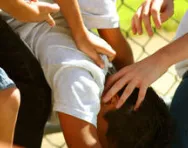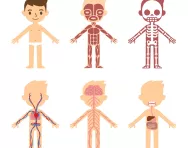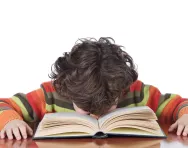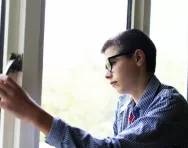Important update from TheSchoolRun
For the past 13 years, TheSchoolRun has been run by a small team of mums working from home, dedicated to providing quality educational resources to primary school parents. Unfortunately, rising supplier costs and falling revenue have made it impossible for us to continue operating, and we’ve had to make the difficult decision to close. The good news: We’ve arranged for another educational provider to take over many of our resources. These will be hosted on a new portal, where the content will be updated and expanded to support your child’s learning.
What this means for subscribers:
- Your subscription is still active, and for now, you can keep using the website as normal — just log in with your usual details to access all our articles and resources*.
- In a few months, all resources will move to the new portal. You’ll continue to have access there until your subscription ends. We’ll send you full details nearer the time.
- As a thank you for your support, we’ll also be sending you 16 primary school eBooks (worth £108.84) to download and keep.
A few changes to be aware of:
- The Learning Journey weekly email has ended, but your child’s plan will still be updated on your dashboard each Monday. Just log in to see the recommended worksheets.
- The 11+ weekly emails have now ended. We sent you all the remaining emails in the series at the end of March — please check your inbox (and spam folder) if you haven’t seen them. You can also follow the full programme here: 11+ Learning Journey.
If you have any questions, please contact us at enquiries@theschoolrun.com. Thank you for being part of our journey it’s been a privilege to support your family’s learning.
*If you need to reset your password, it will still work as usual. Please check your spam folder if the reset email doesn’t appear in your inbox.
Bedwetting in school-age children
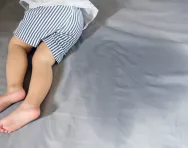
All parents expect their child to have the occasional wet bed. But for thousands of families, bedwetting is a frequent – and in some cases, nightly – problem.
Twelve per cent of children still wet the bed regularly at seven to nine years old, meaning that in an average primary school class, at least two children will be wet at night. But although it’s a common problem, it can be upsetting and frustrating for everyone involved.
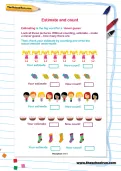

Unique Reception Learning Programme!
- Weekly maths & English worksheets direct to your inbox
- Follows the National Curriculum
- Keeps your child's learning on track
‘Because bedwetting isn’t something we talk about, children often feel like they’re the only one,’ says Brenda Cheer, a paediatric specialist continence nurse and spokesperson for ERIC, the children’s bladder and bowel charity. ‘But it’s infinitely treatable if parents come forward and get their child assessed.’
What causes bedwetting?
There are three main causes of bedwetting in children.
1. The bladder doesn’t stretch enough. ‘This is often because the child is constipated,’ explains Brenda. ‘The full bowel presses against the bladder and reduces the space it has to stretch and fill, so it empties out frequently.’
Some children don’t drink enough during the day, which can cause accidents at night. ‘Not drinking enough means the bladder doesn’t get used to stretching to hold larger volumes of wee, so it can’t hold on for long periods at night,’ says Brenda.
An overactive bladder, which gives an urgent signal to empty before it’s full, can also be responsible for bedwetting.
2. Your child produces too much wee at night. ‘Our bodies produce a hormone called vasopressin, which makes the kidneys slow down urine production at night,’ Brenda explains. ‘Some children don’t produce enough vasopressin, so their bodies make more wee than the bladder can hold.’
3. Your child doesn’t wake when their bladder is full. Some children simply don’t wake up when their bladder signals that it’s full and needs to empty, or wake just afterwards, when it’s too late.
Developing healthy bladder and bowel habits
Bedwetting is often dismissed as something that children outgrow, but it’s a genuine medical problem that can be treated. That said, there are things you can do before seeking treatment – or alongside it – to help your child become dry at night. These include:
- Making sure they have six to eight drinks a day, but none in the hour before bed.
- Giving them a healthy diet with plenty of fruit and veg to prevent constipation: they should poo at least four times a week.
- Encouraging them to empty their bladder fully before bed: get them to take the time to relax so their bladder can empty as much as possible.
- Putting a nightlight and potty or bucket in their room in case they wake and are too desperate to get to the bathroom.
- Rewarding them for drinking well during the day and for helping to change their bedding if they wet (but don’t reward them for staying dry, as it’s beyond their control).
- Encouraging them to think positively, for example by repeating, ‘I can be dry,’ as they get into bed.
Many parents keep their child in pull-ups or nappies at night, but Brenda advises that this could actually delay them becoming dry. ‘These products are so absorbent that the child may not even realise they’re wet,’ she explains. ‘It’s better to put the protection on the bed, rather than the child, so they notice they’re wetting.’ ERIC sells a range of mattress, sheet and pillow protectors in its online shop.
When should you seek help with bedwetting?
In the past, it was rare for children to get specialist help for bedwetting before they were seven. But now, guidelines say that they should be able to receive treatment from the age of five. ‘Before this point, the bladder is immature and bedwetting is considered normal,’ says Brenda. ‘But once a child is five, if they’re wetting at night and are bothered by it they should be treated.’
Your GP or school nurse can refer your child to the bedwetting or enuresis clinic. This may be run by a school nurse, or by the local continence service.
Treatments for bedwetting
There are various treatments for bedwetting. ‘It’s really important to have your child assessed by a health professional, because if you don’t know what’s causing their bedwetting, you don’t know what the best treatment is,’ Brenda adds.
Treatments include:
- Laxatives and/or dietary advice if your child is constipated.
- Bladder training exercises to tackle an overactive bladder that empties too frequently.
- Medication such as oxybutynin to relax the muscles of an overactive bladder.
- A synthetic hormone called desmopressin, taken as a dissolvable wafer, if your child isn’t producing enough vasopressin.
- A bedwetting alarm that trains your child to wake when their bladder is full if they sleep through the signals from their bladder. The alarm wakes them when they start to wet, and over time, they learn to wake before wetting.
Living with bedwetting
Bedwetting can have a big impact on children’s self-esteem. ‘They often feel ashamed and blame themselves, especially if their parents understandably become frustrated with changing wet bedding,’ says Brenda. The broken nights and constant worry can have an impact on their schoolwork, and they may be reluctant to go on sleepovers or school trips.
The more anxious children become about bedwetting, the worse it may get, and it often becomes harder to live with the problem as they get older. They may try to deny it, for example by hiding wet pyjamas and bedding.
Giving your child information about their bedwetting, such as the kids’ pages on ERIC’s website, can also give them a psychological boost. ‘Not only will this give them strategies for dealing with their bedwetting, but it will also help to reassure them that they’re not alone.’ There is also an annual World Bedwetting Day which raises awareness of the problem and can help children feel less isolated.
Bedwetting and school
It’s worth having a word with your child’s teacher so they can crack down on any bullying if the news about their bedwetting gets out. They may also talk about bladder and bowel problems as part of the science or PSHE curriculum. ‘This can help children understand that bedwetting is no one’s fault, and stop the child being stigmatised,’ Brenda explains.
When it comes to school trips and sleepovers, there’s no need for your child to miss out. ‘Staff will be used to dealing with bedwetting, but don’t wait till the last minute to broach the subject: if you tackle it early, you can get things in place to help your child,’ Brenda says.
There are lots of discreet products on the market to help your child enjoy their trip, such as waterproof sleeping bag liners. ‘Teachers can help by letting your child put their pull-up and pyjamas on in a separate bathroom, and we’ve even heard of children finding solutions like keeping a bottle of water by their bed, so they can tip it over their bed if they have an accident and tell their friends they spilt their drink,’ Brenda adds.
‘Above all, remember that it’s not your fault or your child’s fault, so don’t be ashamed to seek help,’ says Brenda. It’s been shown that children whose bedwetting is treated grow in confidence and are more able to listen and concentrate at school, so it’s well worth getting the right treatment: it could be a load off your mind and theirs.

